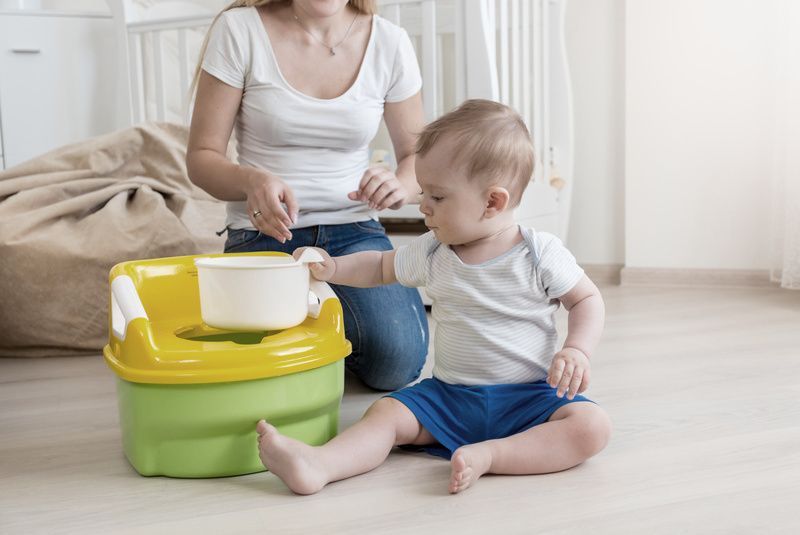The dos and don’ts of potty training

Eager as parents may be to start potty training, it can be a period filled with a lot of uncertainty and frustration.
For insight on your most pressing potty training questions and effective — and not-so-effective — strategies for helping your child, we spoke with Wanessa Risko, MD, DSc., a pediatrician and founder of Singular Pediatrics in Boston Children’s Primary Care Alliance.
When should potty training begin?
One of the first signs your toddler may be ready for potty training is when your child starts telling when something is in their diaper. This will be followed by signs anticipating their bowel movements. “They may hide or make faces,” Dr. Risko says. “At that point, a parent could suggest, ‘Would you like to use the toilet?’”
“Generally, girls are potty training around 2 1/2 and boys around age 3,” says Risko.
“I typically discuss potty training at the 18-month-old wellness visit because part of potty training involves speaking about it before you actually expect the child to be potty trained, just to set the developmentally appropriate expectations,” she explains.
The timeline shifts a bit for children with special needs, who may begin potty training a little later. If you feel your child may be ready, talk with your pediatrician. They can offer guidance tailored to your child.
How long does potty training take?
Potty training isn’t a crash course. Many toddlers are potty trained in three to six months, but others may need more or less time. And it can take months, or even years, before your toddler masters the ability to stay dry overnight.
“A lot of it is about respecting the natural flow of the process, letting your child be in charge, and making sure you have the right equipment,” Dr. Risko says.
Dr. Risko suggests both potty training toilets and seats as appropriate equipment. “You can always give your toddler the option of trying both and notice which one they prefer. If they choose the seat, give them a small stool to rest their feet on. That will help with their sense of security.”
How can parents make potty training easier?
Show your appreciation whenever your toddler uses the toilet, even if nothing happens. But don’t be overly excited if something does.
“Toddlers are very good at perceiving what behaviors warrant a response,” Dr. Risko says. “If they perceive that using the toilet is something that carries a lot of stress, then they can get performance anxiety. And they’ll start avoiding the toilet because they’ll associate it with an emotionally loaded situation.”
That can be the start of a much more challenging cycle. By avoiding the toilet, your toddler could develop constipation, which could reinforce their aversion to the toilet. A similar pattern can develop if your child begins experiencing pain during bowel movements.
What potty training methods should be avoided?
You probably have no recollection of your own potty training, but that may not prevent your parents, in-laws, and other family from offering advice. Be considerate, but also understand that we know more today about what works.
Avoid these once-common tactics:
- making your child sit on the toilet against their will
- punishing your child for not using the toilet
- treating accidents or bedwetting like bad behavior
Instead, try to establish a routine that offers opportunities to use the toilet. For example, suggest they sit on the toilet after waking up or 30 minutes after a meal. Even then, put your toddler on the toilet for just a few minutes and let them get up if they want to.
“Setbacks are part of the process,” Dr. Risko says. “Reassure them that accidents will happen while they’re learning to use the toilet like a big kid.”
Finally, make sure all of your toddler’s caregivers are on the same page. Let them know how you’re handling potty training and ask them to follow the same routine and use the same names for body parts and bathroom acts.
When you should see a pediatrician
There are some specific signs that you should call your pediatrician:
- no bowel movements for three days
- refusal to use the toilet
- signs of pain when trying to pee or poop
- infrequent or too frequent urination
- blood in their urine or diaper
If your toddler hasn’t mastered daytime potty training by age 4, you may also want to talk to their pediatrician.
If your toddler is having trouble potty training or you need more specific guidance, find a Boston Children’s Primary Care Alliance practice near you.
Related Posts :
-

Finding a nutrition plan that works for your family
Every day, millions of people follow specialized diets for myriad reasons. These can include religious or ethical beliefs, allergies or ...
-

Helping your child cope with separation anxiety
When your baby can’t seem to fall asleep in their crib after weeks of trying, or daycare drop-off always ...
-

More than the blues: Navigating postpartum depression
Whether you’ve given birth to your first child or you’re adding a member to your growing family, childbirth ...
-

Remember these seven things before bringing your newborn home from the hospital
Congratulations, you just had a baby! Now what? Whether it’s your first, second, or eighth child, the initial weeks ...





